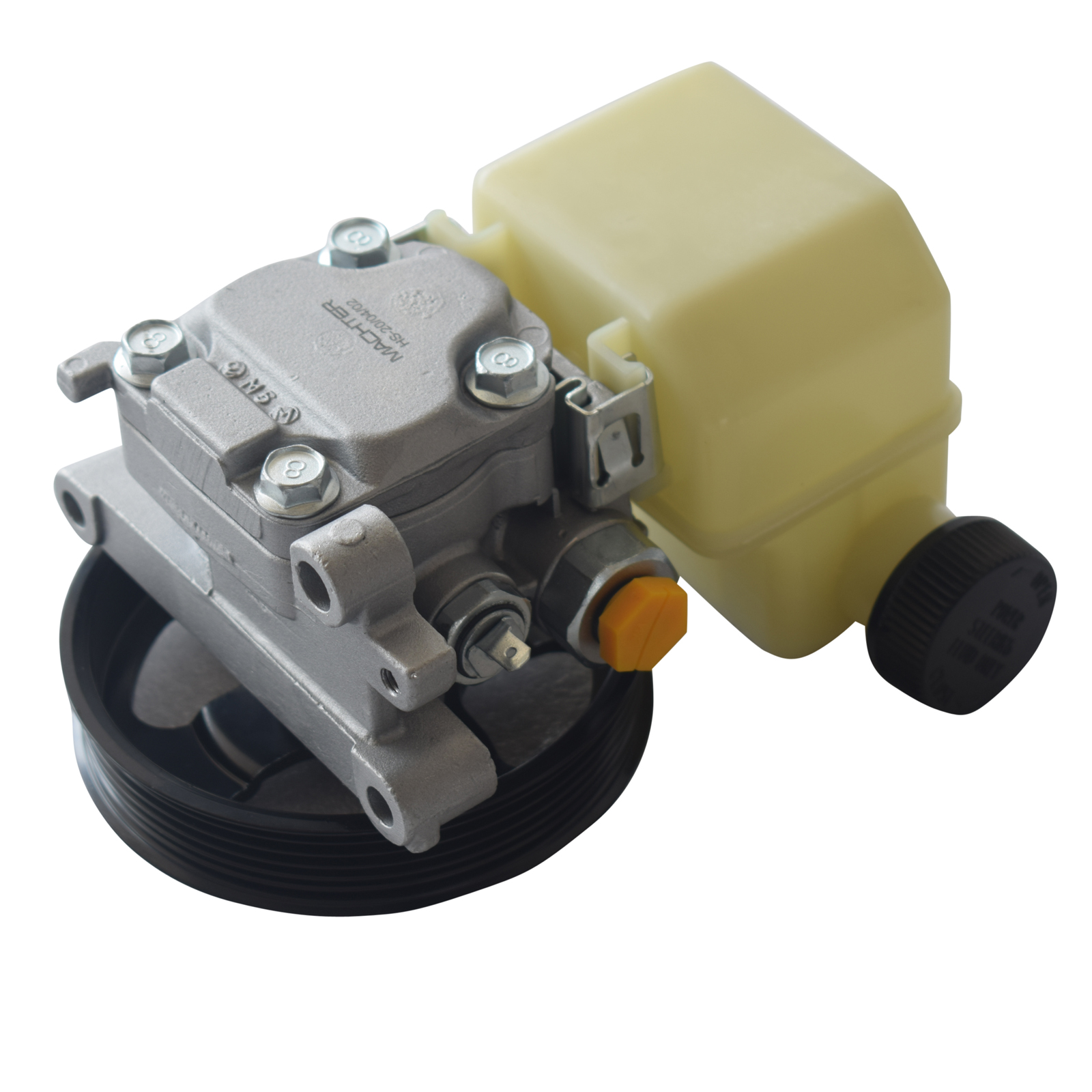Power Steering Pump vs Electric Power Steering: Which is Better?
Date Posted: 17 October 2024

Steering You in the Right Direction
When it comes to upgrading or replacing your vehicle’s steering system, you might find yourself faced with a choice between a traditional power steering pump and an electric power steering system. Both options offer their own unique benefits and drawbacks, making the decision a crucial one. Whether you’re looking to improve your Toyota’s handling, boost your Ford’s performance, or enhance your Nissan’s fuel efficiency, understanding the differences between these two systems is key to making the right choice for your ve hicle.
hicle.
What is a Power Steering Pump?
A power steering pump is the heart of a hydraulic power steering system. It’s responsible for pressurising and circulating power steering fluid throughout the steering mechanism. When you turn the steering wheel, the pump provides the necessary hydraulic pressure to assist in moving the steering gear, making it easier to turn the wheels. This tried-and-true technology has been a staple in vehicles for decades, offering reliable performance across a wide range of makes and models, from the robust Toyota power steering pump to the BMW power steering pump.
What is Electric Power Steering?
Electric power steering, on the other hand, is a more modern approach to assisted steering. This system replaces the hydraulic components with an electric motor that provides steering assistance directly to the steering column or rack. The amount of assistance is controlled by a computer that takes into account factors such as vehicle speed and steering input. This technology has gained popularity in recent years due to its efficiency and adaptability. For example, some Mazda 3s use electric power steering, while other models will still use a traditional Mazda power steering pump.
Pros & Cons: Power Steering Pump vs Electric Power Steering
Power Steering Pump Pros:
- Proven reliability: With decades of use, hydraulic systems have a track record of longevity.
- Consistent performance: Provides consistent steering feel across various driving conditions.
- Easier to repair: Many mechanics are familiar with these systems, making repairs more straightforward.
- Cost-effective replacement: Parts like a Nissan power steering pump are often more affordable to replace.
Power Steering Pump Cons:
- Less fuel-efficient: The pump constantly draws power from the engine, affecting fuel economy.
- Maintenance required: Regular fluid checks and replacements are necessary.
- Potential for leaks: Hoses and seals can deteriorate over time, leading to fluid leaks.
- Heavier system: Adds more weight to the vehicle compared to electric systems.
Electric Power Steering Pros:
- Improved fuel efficiency: Only uses power when steering assistance is needed.
- Customisable steering feel: Can be programmed for different driving modes.
- Compact design: Takes up less space in the engine bay.
- No fluid maintenance: Eliminates the need for power steering fluid checks and replacements.
Electric Power Steering Cons:
- Potentially higher repair costs: Specialised components can be more expensive to replace.
- Complexity: Advanced electronics may require specialised diagnostic tools.
- Less feedback: Some drivers experience a lack of road feel compared to hydraulic systems.
- Dependent on electrical system: A failing battery or alternator can affect steering performance.
Machter’s Top Considerations & Maintenance Tips
Compatibility & Vehicle Types
Power steering pumps are commonly found in older vehicles and many larger vehicles like 4WDs and utes. For instance, you’ll often find a hydraulic Ford power steering pump in a Ranger. On the other hand, electric power steering is more common in newer, smaller cars and hybrids, such as the latest Mazda 3 models or the Toyota Corolla. Contact our expert support team for advice about what type of power steering is right for your ride.
Maintenance Tips
For vehicles with power steering pumps, regular fluid checks are crucial. Look for signs of fluid leaks, listen for unusual noises when turning, and have the system flushed every 50,000 km. For electric power steering, while there’s no fluid to maintain, pay attention to any changes in steering feel or warning lights on your dashboard
DIY Considerations
While replacing a power steering pump can be a DIY project for experienced home mechanics, working on electric power steering systems often requires specialised tools and knowledge. Always consult your vehicle’s manual and consider professional assistance for complex steering system repairs.
Performance Considerations
Power steering pumps can slightly reduce engine power as they draw energy directly from the engine. This effect is more noticeable in smaller engines. Electric power steering, however, can be tuned for different driving modes, offering lighter steering for city driving and firmer control for highway speeds.
Did You Know?
Before the advent of power steering, driving was a much more physically demanding task. Steering wheels were larger to provide more leverage, and parking or manoeuvring at low speeds required significant upper body strength. The introduction of the power steering pump revolutionised driving, making it accessible to a broader range of people and significantly improving safety and control.
Find the Right Fit Online with Machter
Don’t let steering issues slow you down. Visit our online store today to explore our extensive selection of steering components, or give us a call to speak with one of our automotive experts. We’re here to ensure you get the right parts for your vehicle, backed by our 2-year local warranty and lowest price guarantee. With fast dispatch and local pickup available, you can get back on the road quickly and confidently. Trust Machter Autoparts for all your steering needs — where quality meets affordability.





